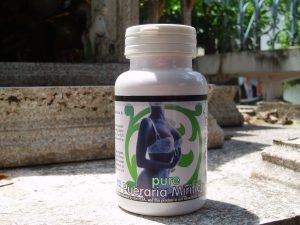As these hormones decline, your ovulation and menstruation will become irregular, eventually stopping altogether. Although it is still possible to get pregnant during perimenopause as eggs may be released from your ovaries, ovulation will probably be sporadic. As you age, the female hormones that regulate your ovulation and menstruation begin to decline. Signs of menopause and symptoms of this hormone decline include hot flashes, headaches, and mood swings. Gradually, your estrogen levels will decline and your body will stop producing progesterone. And, in between, they worry about when the next one will strike. You are no longer bound to periods and hormones and can live without the worry of pregnancy. You are likely to go through menopause around the same time that your grandmother, mother, or sister did, give or take a few years. Perimenopause can last anywhere from 2 to 5 years, but some women can remain in this stage of menopause for up to 15 years.
This stage is simply called menopause and usually occurs around age 50 or 51. In order to be in menopause, your period must be absent for at least 12 consecutive months. Usually, the body regulates menopause; this is called natural menopause. The final stage of menopause is called postmenopause. The second stage of menopause occurs when your period no longer arrives. The first stage of menopause is known as perimenopause. The first signs of menopause are irregular periods and spotting due to fluctuating hormone levels in your body. All the vegetables below have beneficial elements and the first three on the list contain higher phytoestrogenic (estrogen-like) properties so why not give them a space in your plot? That is why you should spend the rest of this year preparing yourself for what is to come. From the perspective of the Law of Cause and Effect, why do we have to live life after life without a halt? Very basically, menopause is the time in your life when you no longer get your period. You still have some time to actually brace yourself for the incoming year. Leading astrologers have already confirmed that the incoming year is going to be one that will present a slew of changes for various aspects of your life.
A lot of the things that you have gotten used to now (whether good or bad) are things that you might have to part in 2019. You are in for one hell of a rollercoaster next year. Do you think that you’re going to have a happy and fruitful 2019? Do you think that you’re going to have a much better year next year or are things going downhill for you? But for these 5 Zodiac signs, in particular, you’re going to have to make sure that you are really going to be able to handle the whirlwind that you will be put through next year. Research hasn’t shown that there are specific foods that all fibromyalgia patients should avoid or add to their diets. There were two different kinds of tests: one where the volunteer was supposed to press the space bar whenever they saw either good words or partner-related words, and one where the combination was bad words and partner words.
There are numerous products available on the market today which help us improve our metabolism. And you just have to make sure that you are ready for it. The best information I have gotten about myoclonus is here. They wouldn’t reveal any information in my communications with them (maybe because it would have been self-incriminating). Relaxation techniques – Simply doing things that relax you such as listening to music or going for strolls through the park can have a dramatic impact on any anxiety you might experience. And this is especially going to be true for a certain number of Zodiacs. Your body has a finite number of eggs in your ovaries and, eventually, no more eggs will be released from your ovaries for fertilization. Most women stop menstruating completely between the ages of 50 and 51, however the whole menopausal process can last a number of years. Estrogen level decreases. Your ovaries decrease production of estrogen as you get older, usually 45-55 years of age.



